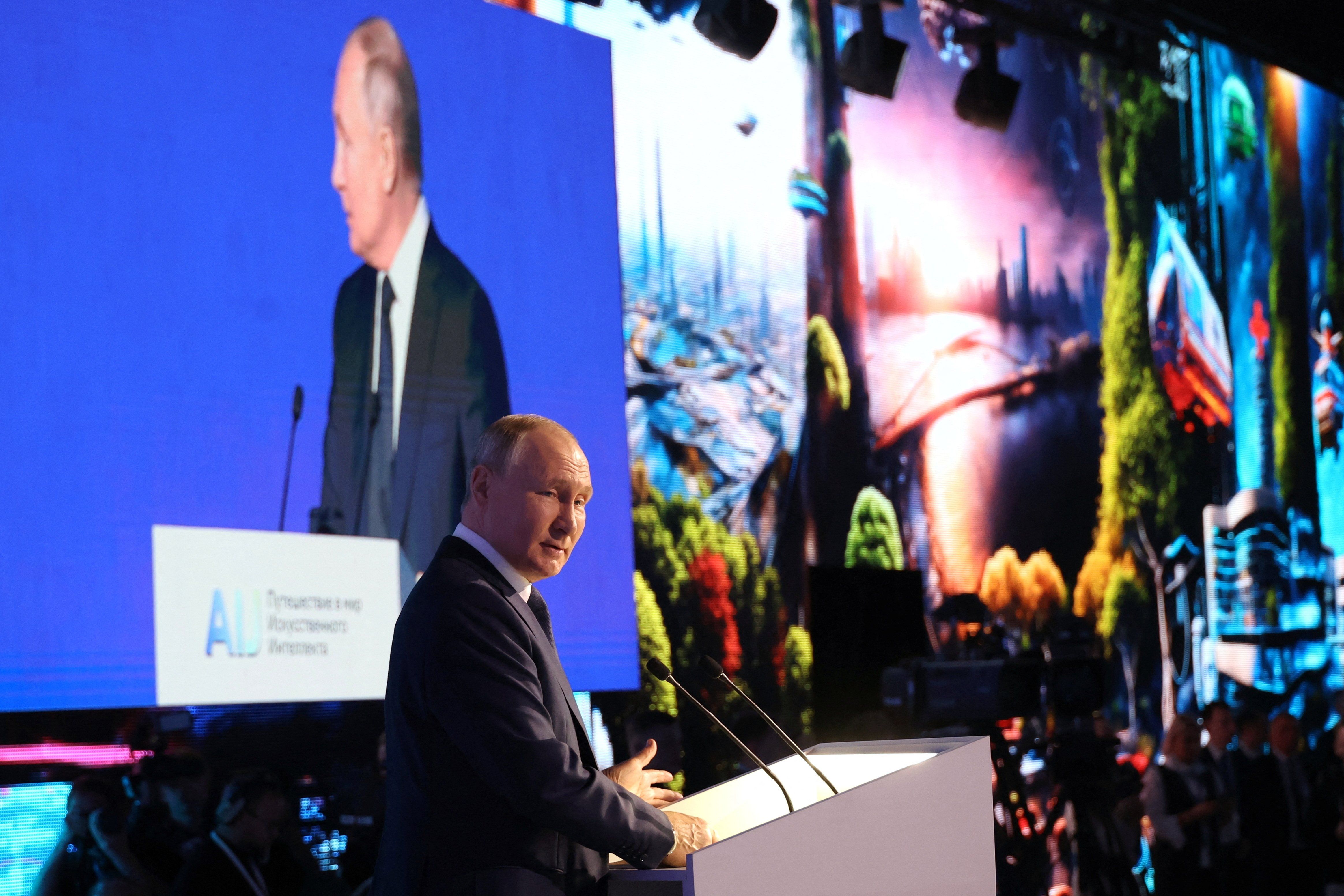President Vladimir Putin on Friday warned that the West should not be allowed to develop a monopoly in the sphere of artificial intelligence and said that a much more ambitious Russian strategy for the development of AI would be approved shortly.
Putin’s speech was both a statement of intent and a critique of the West’s dominance of modern technology. “Monopolistic dominance of such foreign technology in Russia is unacceptable, dangerous, and inadmissible,” Putin said, noting that “monopoly and domination” of AI by foreign powers is “unacceptable and dangerous.”
Russia is lagging in the AI race. By one count of “significant machine learning systems” cited by Stanford University’s Institute for Human-Centered AI, the US leads the world with 16 such systems, followed by the UK with eight, and China with three. Russia, meanwhile, has just one.
Russia has its own AI chatbots hoping to rival OpenAI’s ChatGPT, such as GigaChat from the state-owned financial services company Sberbank. But Moscow has meddled in the affairs of its private technology firms, including Yandex, the so-called “Google of Russia,” for its namesake search engine. Yandex, now owned by a Dutch holding company, is in the process of divesting from its Russian assets after clashing with Moscow’s censors. With Yandex largely left out of Moscow’s AI planning due to deep-seated distrust, Russia has funneled its AI ambitions through state-owned firms like Sberbank and made limited progress in jumpstarting its domestic AI development.
Moscow may be serious about funding AI development, but that would require Putin to loosen his chokehold on Russian industry – which is about as likely as him sharing eggnog with Zelensky this Christmas.
